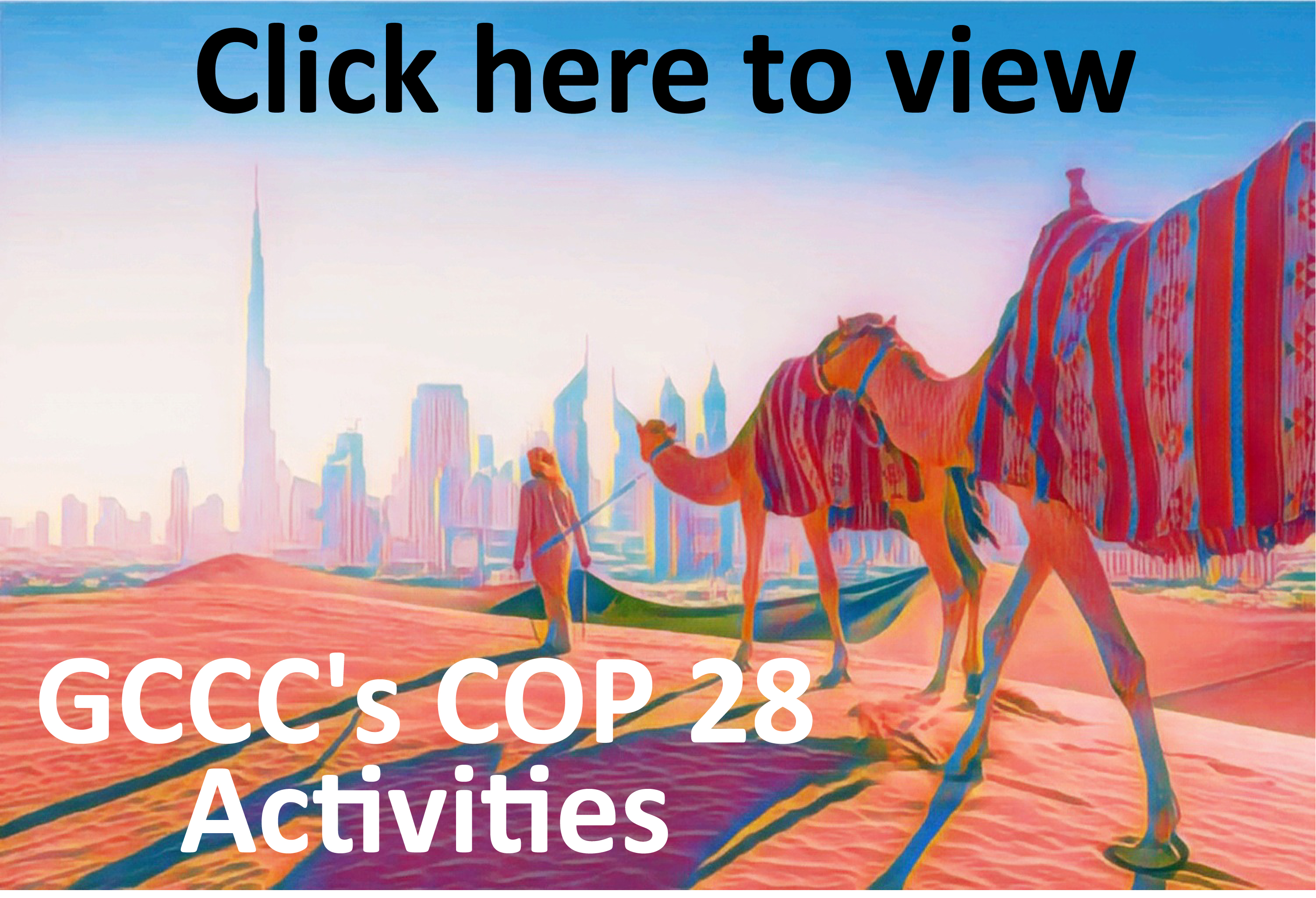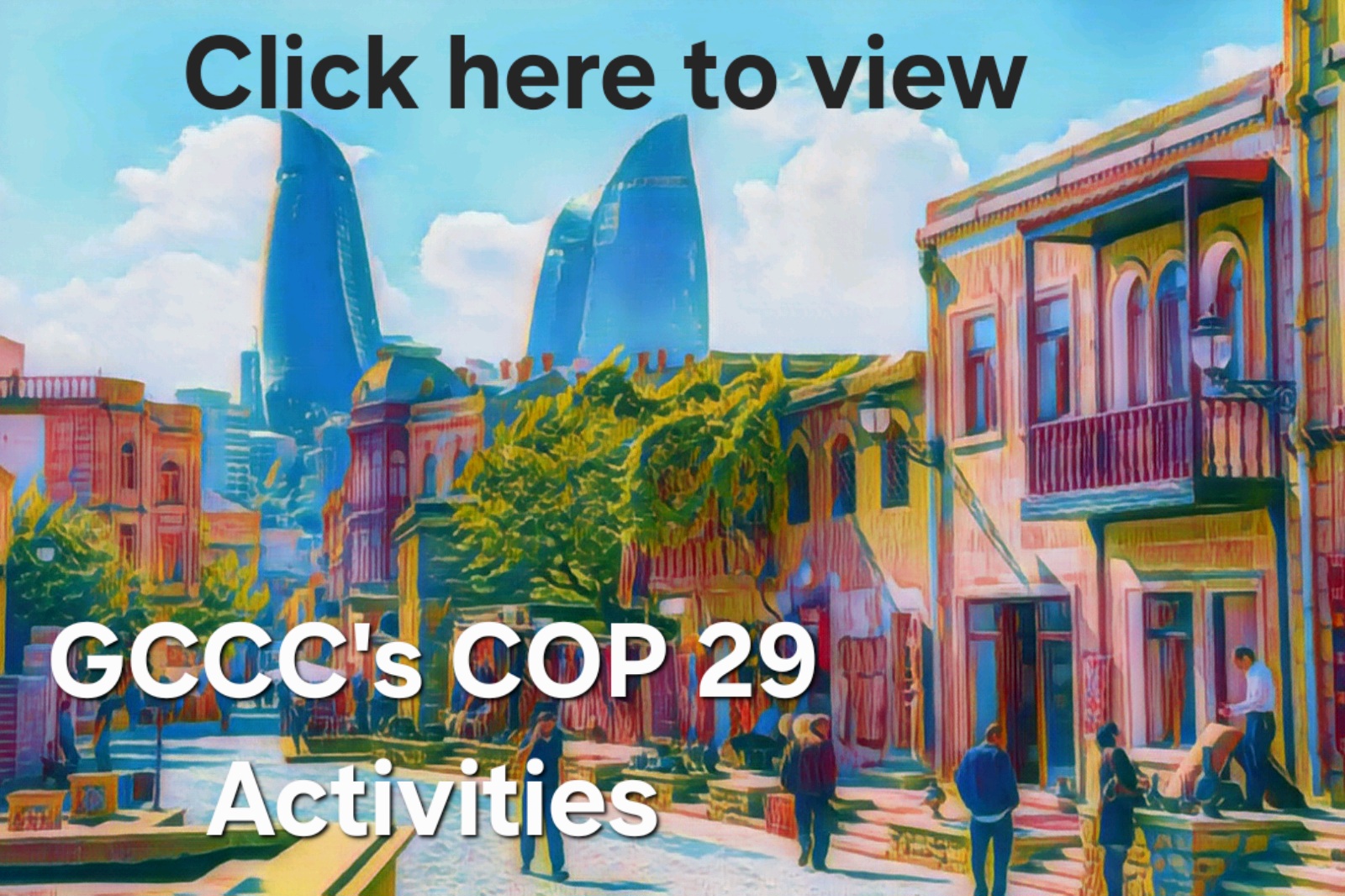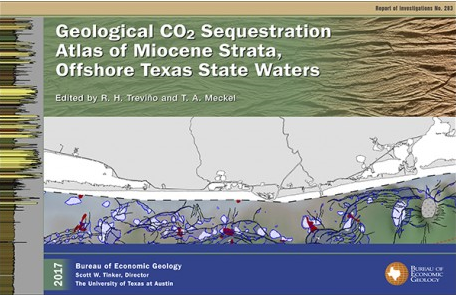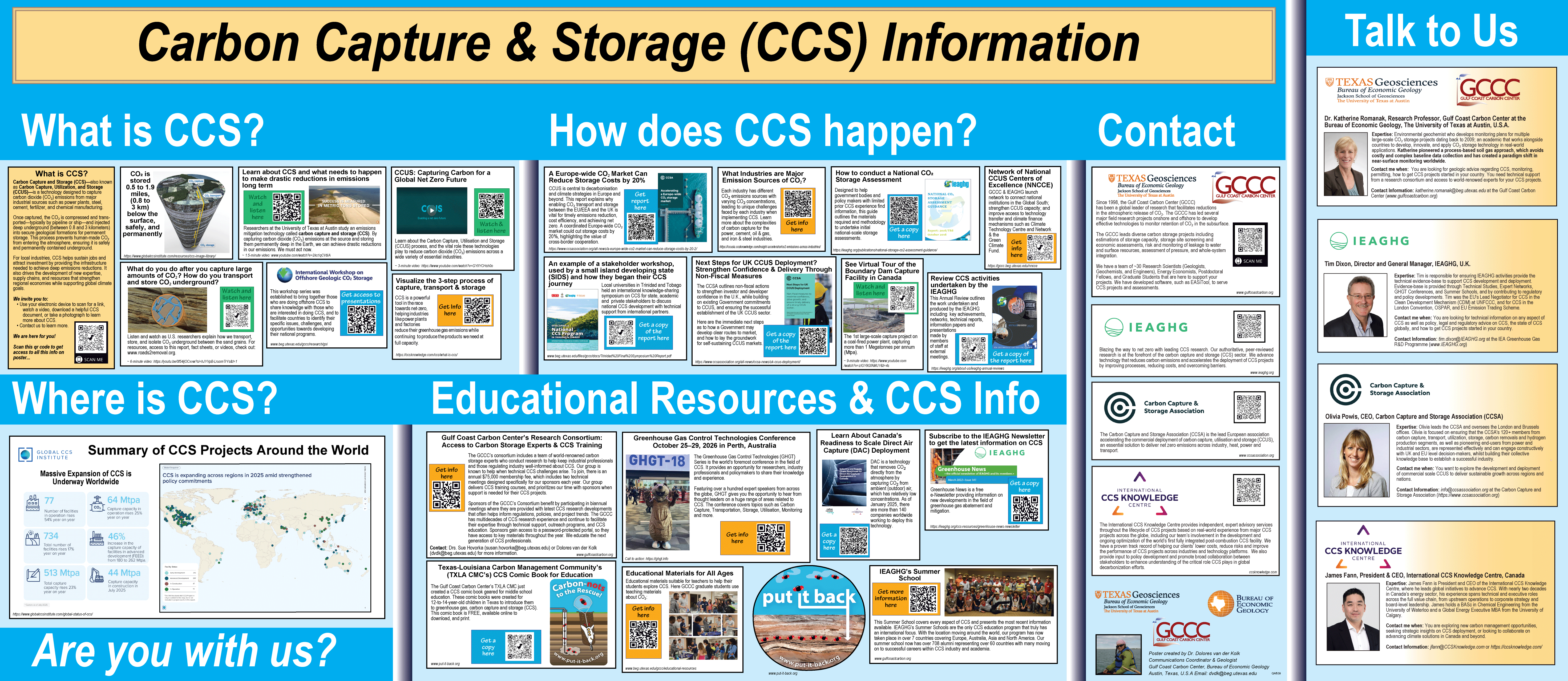
UNFCCC COP 30
Welcome to our COP 30 carbon capture and storage (CCS) information page. The following summarizes the Gulf Coast Carbon Center’s activities at the 2025 United Nations Framework Convention on Climate Change, Conference of Parties (UNFCCC COP), commonly referred to as COP 30. COP 30 will be held November 10–21, 2025, in Belém, Brazil.
For COP 30, the Gulf Coast Carbon Center (GCCC) is partnering with IEA Greenhouse Gas Research & Development Programme (IEAGHG), Carbon Capture & Storage Association (CCSA), and the International CCS Knowledge Centre to help circulate information about CCS at official side events and exhibits.
COP 30 Commentary & Outcomes
- November 15, 2025 – What is the Role of Non-State Actors in Delivering Carbon Capture and Storage, Including in Latin American and Caribbean Countries? (IISD Earth Negotiations Bulletin)
- November 18, 2025 – The First Week at COP30: Negotiations, CCS Events, and the Carbon Removals Roadmap (Tim Dixon, ieaghg.org)
- November 24, 2025 – COP30 Second Week and Final Outcomes – Fire and Water (Tim Dixon, ieaghg.org)
- Report about “CCUS Myth-Bustin Live” (UKCCS Research Community). Take a look at this event in the YouTube video below.
COP 30 Special Events
- Saturday, November 15, 2025, 11:30–13:00, Official UNFCCC Side Event, "What is the Role of Non-State Actors in Delivering CCS, including in LATAM and Caribbean Countries?" located at Side Event Room 9, Blue Zone. Organizers: The University of Texas at Austin, IEAGHG, Bellona, CCSA, International CCS Knowledge Centre
- Exhibit Booth #40, November 17–20, 2025 will be provided by institutions with extensive research experience and technical training expertise in Carbon Capture and Storage (CCS). These institutions include UT Austin's Gulf Coast Carbon Center (GCCC), IEA Greenhouse Gas Research & Development Programme (IEAGHG), Carbon Capture & Storage Association (CCSA), and the International CCS Knowledge Centre.
- November 17, 2025, Katherine Romanak participated in an interactive session entitled, “CCUS Myth-Busting Live: Ask the Experts” held at the UK COP Pavilion.
- November 19, 2025, Katherine Romanak participated in the CCS vs. CDR event, hosted by the Negative Emissions Platform (NEP)
We invite you:
- To click on links, watch videos, or download a helpful CCS document posted below
- To contact us, please reach out to Katherine Romanak if you have any questions
What is Carbon Capture and Storage (CCS)?
Carbon Capture and Storage (CCS)—also known as Carbon Capture, Utilization, and Storage (CCUS)—is a technology designed to capture carbon dioxide (CO₂) emissions from major industrial sources such as power plants, steel, cement, fertilizer, and chemical manufacturing. Once captured, the CO₂ is compressed and trans- ported—typically by pipeline or ship—and injected deep underground (between 0.8 and 3 kilometers) into secure geological formations for permanent storage. This process prevents human-made CO₂ from entering the atmosphere, ensuring it is safely and permanently contained underground. For local industries, CCS helps sustain jobs and attract investment by providing the infrastructure needed to achieve deep emissions reductions. It also drives the development of new expertise, supply chains, and resources that strengthen regional economies while supporting global climate goals.
- Did you know? CO₂ is stored 0.5 to 1.9 miles (0.8 to 3 km) below the surface, safely, and permanently.
- Learn about CCS and what needs to happen to make drastic reduction in emissions long term by researchers at The University of Texas at Austin, Bureau of Economic Geology, Gulf Coast Carbon Center (1.5-minute BEG GCCC video).
- What do we do after capturing large amounts of CO₂? How do we transport and store CO₂ underground? (~ 6-minute video from roads2removal.org)
- Explore the Carbon Capture, Utilization and Storage (CCUS) process, and the vital role these technologies play to reduce CO₂ emissions across a wide variety of essential industries. (~ 3-minute video: https://www.youtube.com/watch?v=GYlIYCHsh0o)
- Access previous presentations about offshore CCS projects presented at the International Workshop on Offshore Geologic CO₂ Storage to see how countries work towards specific issues, challenges, and opportunities towards developing their national programs.
- Visualize the 3-step process of capture, transport & storage CCS is a powerful tool in the race towards net-zero, helping industries like power plants and factories reduce their greenhouse gas emissions while continuing to produce the products we need at full capacity.
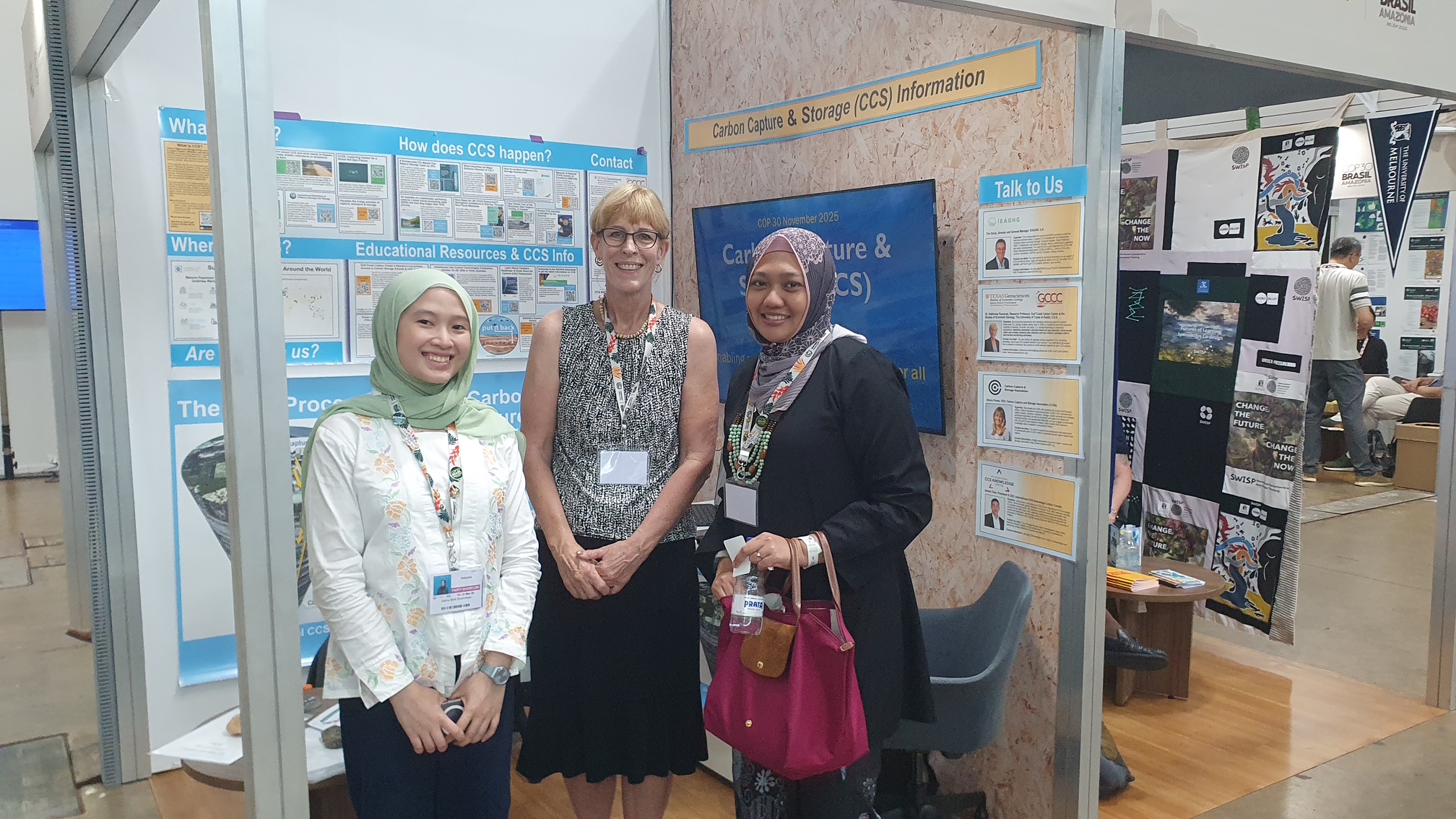
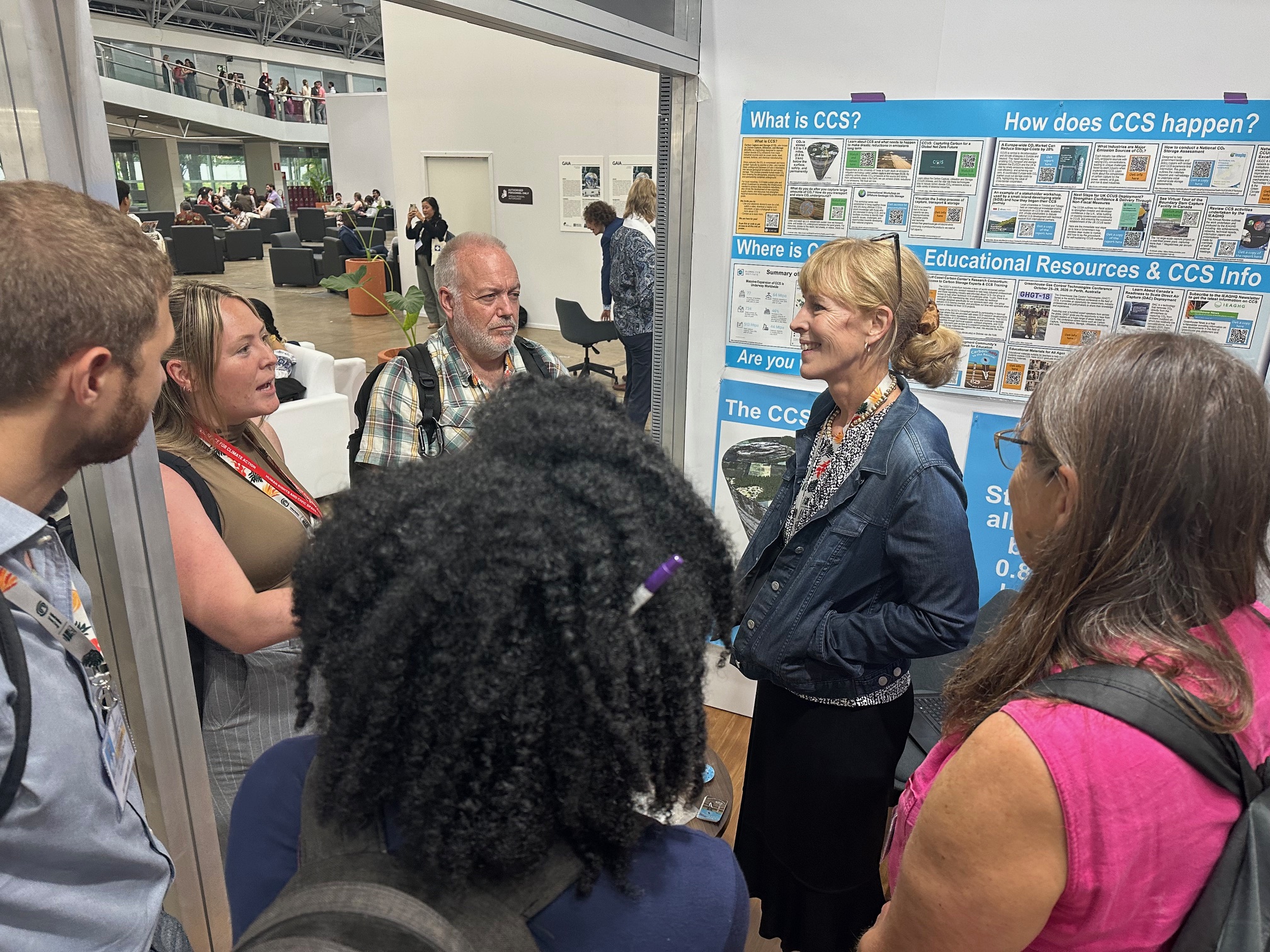
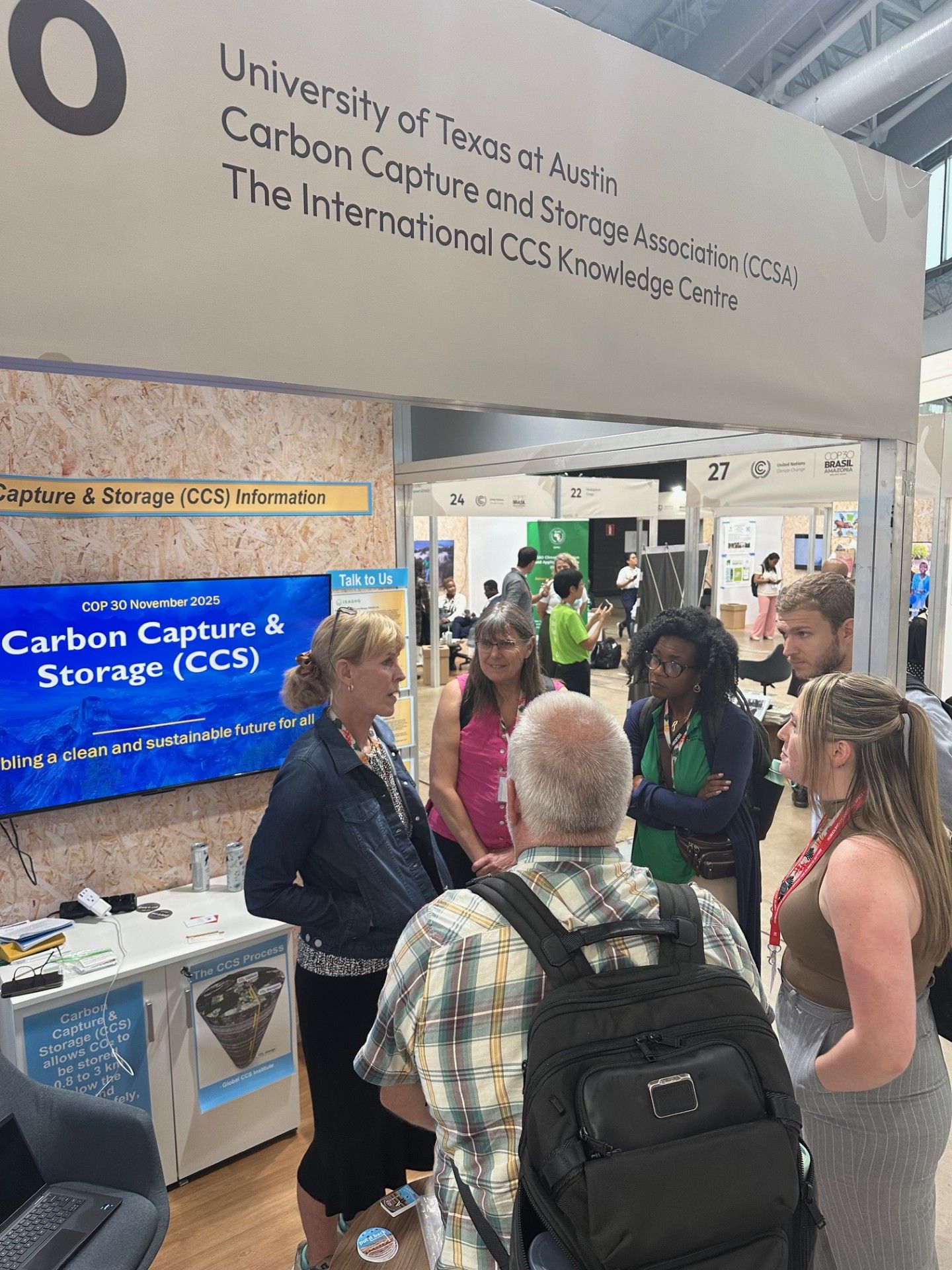
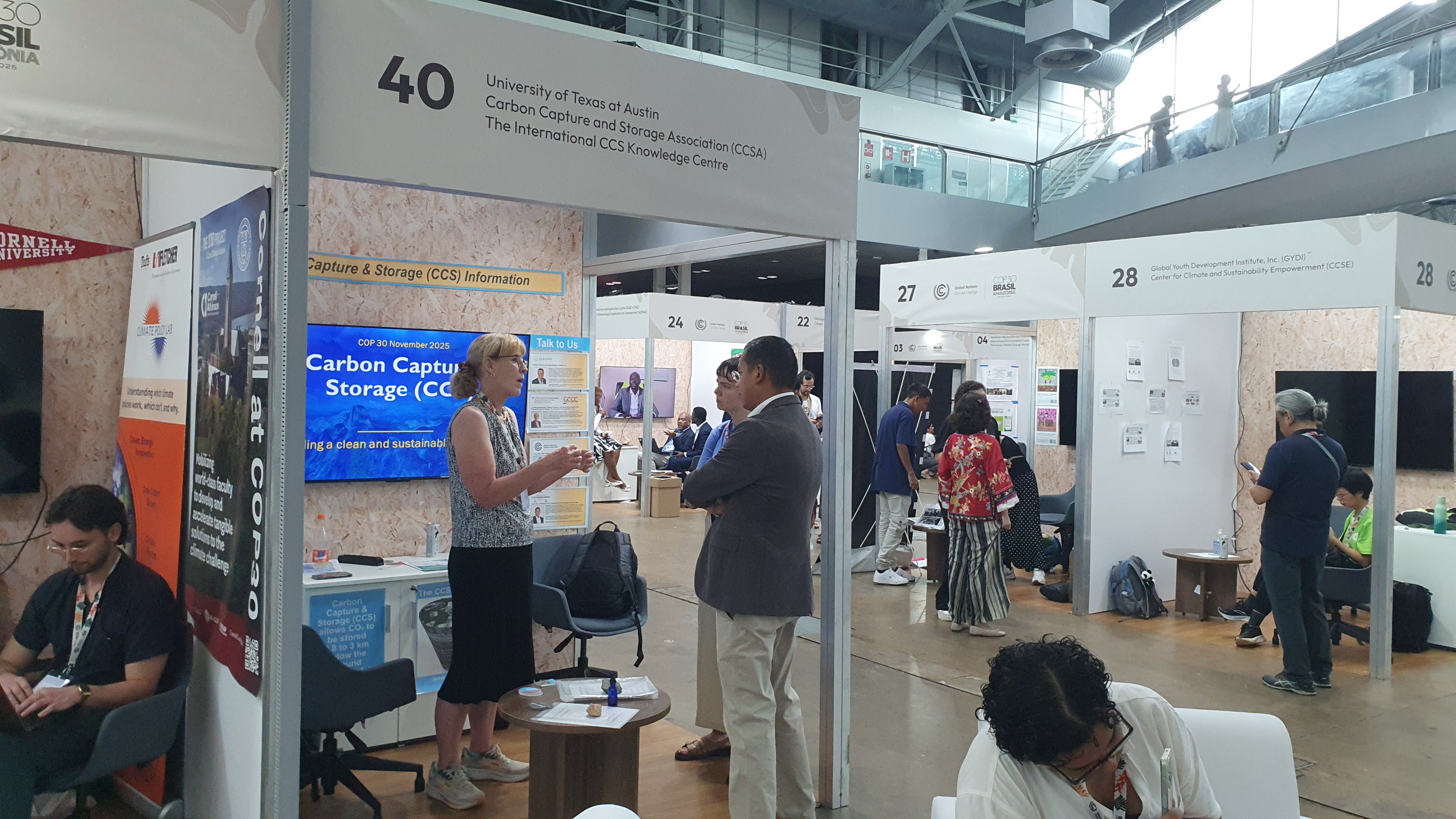
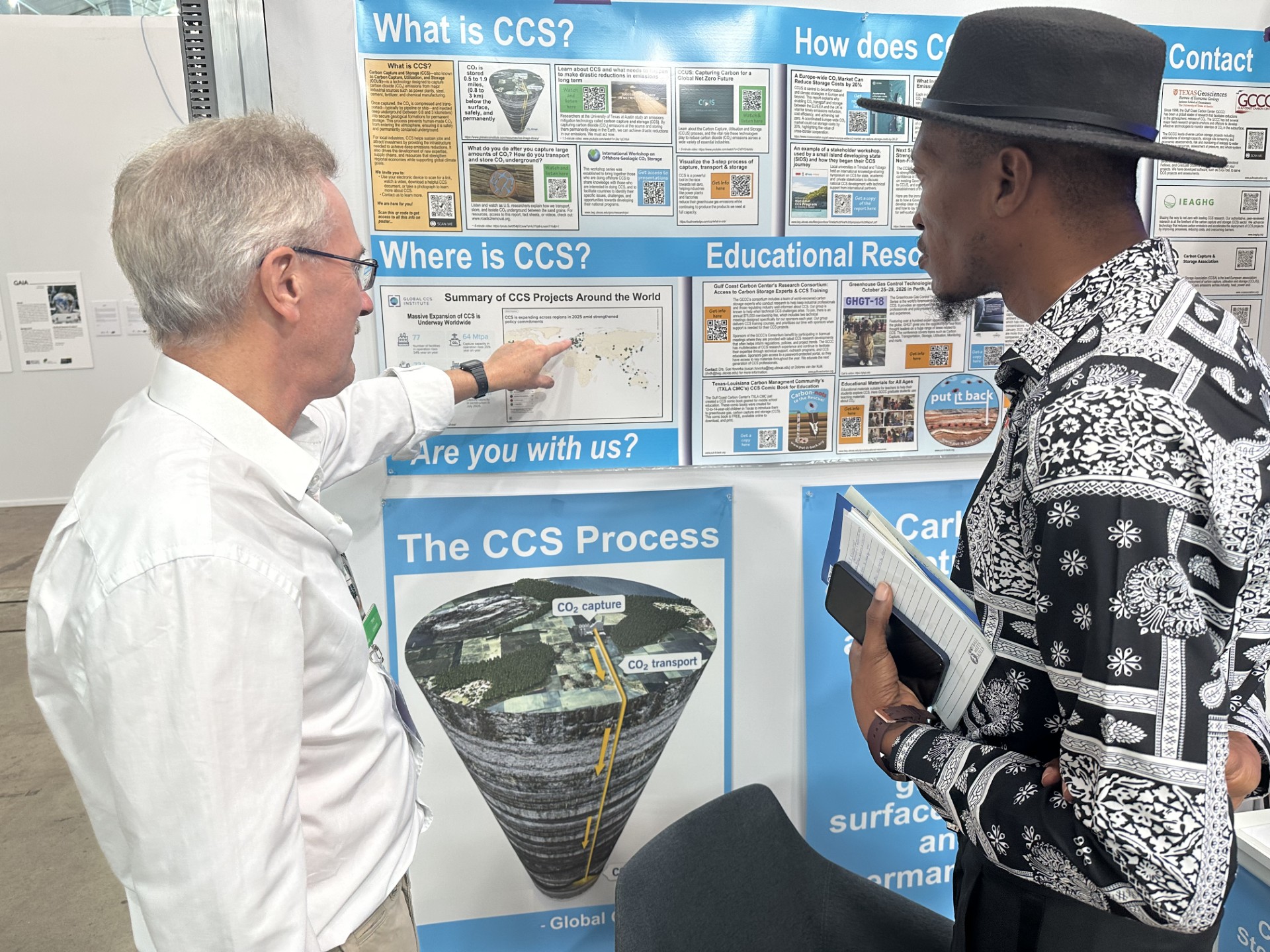
How does CCS happen?
- Discover how a Europe-wide CO₂ market can reduce storage costs by 20% from a CCSA report.
- What Industries are Major Emission Sources of CO₂? Each industry has different CO₂ emissions sources with varying CO₂ concentrations, leading to unique challenges faced by each industry when implementing CCS. Learn more about the complexities of carbon capture for the power, cement, oil & gas, and iron & steel industries.
- How do you conduct a national CO₂ Storage Assessment? Designed to help government bodies and policy makers with limited prior CCS experience find information, here is a guide that outlines the materials required and methodology to undertake initial national-scale storage assessments.
- Study an example of a stakeholder workshop, used by a small island developing state (SIDS) and how they began their CCS Journey. Local universities in Trinidad and Tobago held an international knowledge-sharing symposium on CCS for state, academic and private stakeholders to discuss national CCS development with technical support from international partners.
- Tour the Boundary Dam Capture Facility in Saskatchewan, Canada (9-minute CCS Knowledge Center video)
- Check out the Network of National CCUS Centers of Excellence (NNCCE) – The GCCC & IEAGHG launched a network to connect national institutions in the Global South; strengthen CCUS capacity; and improve access to technology transfer and climate finance mechanisms such as Climate Technology Centre and Network & the Green Climate Fund.
- What are the next Steps for UK CCUS Deployment? How do you strengthen confidence and delivery through non-fiscal measures? - This CCSA report outlines non-fiscal actions to strengthen investor and developer confidence in the U.K., while building on existing Government commitments to CCUS, and ensuring the successful establishment of the UK CCUS sector. Follow immediate next steps as to how a government may develop clear routes to market, and how to lay the groundwork for self-sustaining CCUS markets.
- Survey CCS activities undertaken by the IEAGHG. This Annual Review outlines the work undertaken and produced by the IEAGHG including key achievements, networks, technical reports, information papers and presentations made by members of staff at external meetings.
Where are CCS Projects today?

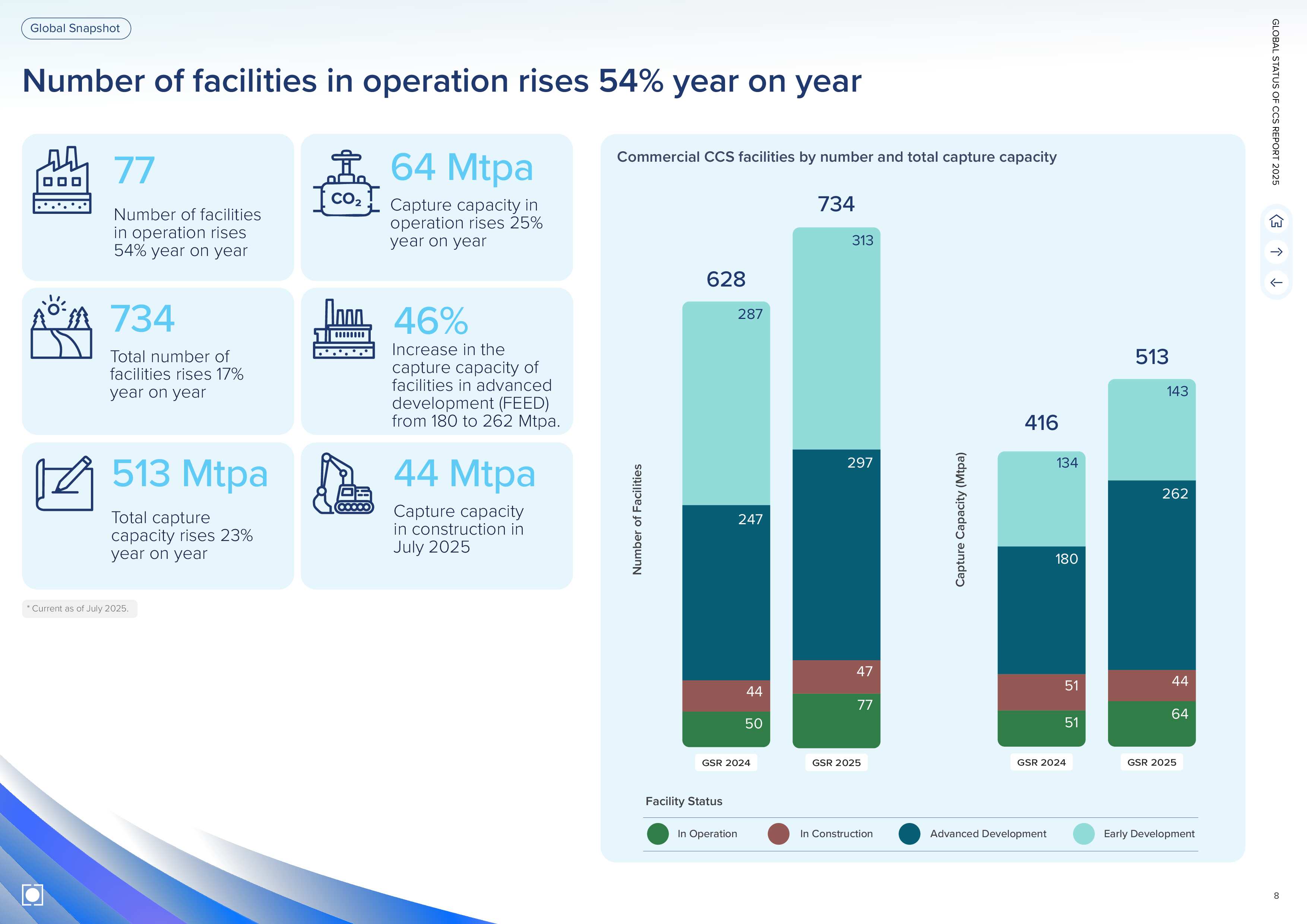
Educational Resources & CCS Information
- Gulf Coast Carbon Center’s Research Consortium – Provides access to Carbon Storage Experts & CCS Training. The GCCC’s consortium includes a team of world-renowned carbon storage experts who conduct research to help keep industrial professionals and those regulating industry well-informed about CCS. Our team is known to help when technical CCS challenges arise. To join, there is an annual membership fee, which includes two technical meetings designed specifically for our sponsors each year. Our group delivers CCS training courses and prioritizes our time with sponsors when support is needed for their CCS projects.
Sponsors of the GCCC’s Consortium benefit by participating in biannual meetings where they are provided with latest CCS research developments that often help inform regulations, policies, and project trends. The GCCC has multiple decades of CCS research experience and continues to facilitate their expertise through technical support, outreach programs, and CCS education. Sponsors gain access to a password-protected portal, so they have access to key materials throughout the year. We educate the next generation of CCS professionals. Contact Katherine Romanak for more information. - The next Greenhouse Gas Control Technologies Conference will be held in Perth, Australia on October 25–29, 2026. The Greenhouse Gas Control Technologies (GHGT) Series is the world's foremost conference in the field of CCS. It provides an opportunity for researchers, industry professionals and policymakers to share their knowledge and experience. Featuring over a hundred expert speakers from across the globe, GHGT gives you the opportunity to hear from thought leaders on a huge range of areas related to CCS. The conference covers topics such as carbon capture, transportation, storage, utilization, monitoring and more.
- Take a look at the Texas-Louisiana Carbon Management Community’s (TXLA CMC’s) CCS Comic Book for Educational Purposes - The Gulf Coast Carbon Center’s TXLA CMC just created a CCS comic book geared for middle school education. These comic books were created for 12-to-14-year-old children in Texas to introduce them to greenhouse gases, carbon capture and storage (CCS). This comic book is FREE, available online to download, and print.
- Receive CCS educational and hands-on materials that are suitable for teachers (K-22) to help students explore carbon dioxide and CCS.
- Learn About Canada’s Readiness to Scale Direct Air Capture (DAC) Deployment - DAC is a technology that removes CO₂ directly from the atmosphere by capturing CO₂ from ambient (outdoor) air, which has relatively low concentrations. As of January 2025, there are more than 140 companies worldwide working to deploy this technology.
- Subscribe to the IEAGHG Newsletter to get the latest information on CCS.
- IEAGHG’s International CCS Summer School - This Summer School covers every aspect of CCS and presents the most recent information available. IEAGHG’s Summer Schools are the only CCS education program that truly has an international focus. With the location moving around the world, our program has now taken place in over 7 countries covering Europe, Australia, Asia and North America. Our summer school now has over 708 alumni representing over 60 countries with many moving on to successful careers within CCS industry and academia.
- www.put-it-back.org has incredible CCS resources for the general public and STEM teachers
Previous COP Events & Activities
Contact your CCS Information Providers for More Information
- Gulf Coast Carbon Center, located at the Bureau of Economic Geology, at The University of Texas at Austin
- IEAGHG
- Carbon Capture & Storage Association
- International CCS Knowledge Center






Last Updated: December 18, 2025

